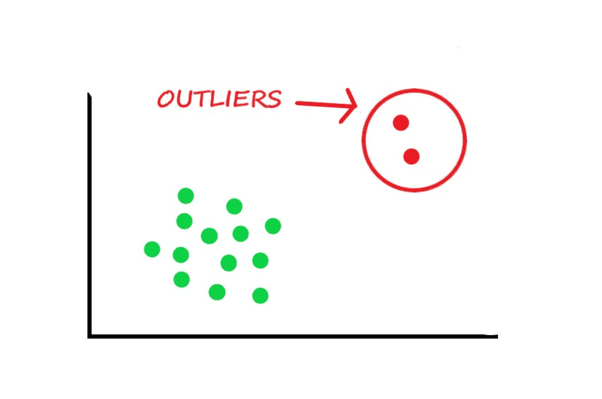Possible Preaching Themes
Possible Scientific Resources
- Why did Jesus Get angry?
- How did Jesus address the cause of His anger?
- Christ as the new Temple – the place of encounter with God.
- Second Wave Positive Psychology. This is a more nuanced form of positive psychology, recognizing that what we normally classify as negative mental states (e.g., anger, guilt, fear) can sometimes contribute to human flourishing. It further stresses that an over emphasis on positive mental states (e.g., optimism, forgiveness, confidence) can at times be harmful. Forced positivity can lead to a denial of reality and be detrimental to constructive change. A particularly potent example of this concerns forgiveness in abusive relationships, which can aggravate problems. https://positivepsychologynews.com/news/marta-velazquez
- The Right Way to Get Angry. Anger is a very effective emotion for “mobilizing other people and creating support for a cause.” There is a difference between rage and anger. Anger can be a beneficial source of emotional information that focuses “attention, thinking, and behaviour toward a surprising number of effective outcomes.” https://greatergood.berkeley.edu/article/item/the_right_way_to_get_angry
- How Anger can be a Positive Emotion. What makes us angry depends on what is important to us and how we interpret what we see. Anger is a moral emotion and can be triggered by what we perceive to be an injustice to ourselves or others. Anger can alert us to “an imbalance that needs to be righted” and can be channelled to bring about good. https://theippc.com/how-anger-can-be-positive-emotion/
Homily Outline Combining Resources
Homily outline combining all the themes and resources:
- The cleansing of the Temple is recorded in all four gospels.
- This indicates that it was a pivotal moment in Jesus’ ministry.
- It was a very dramatic public action in the most sacred of places.
- What was it that made Jesus angry?
- We are given at least part of the answer when Jesus says, “stop turning my father’s house into a market.” When Jesus was found in the temple as a twelve-year-old he said, “did you not know I must be going about my father’s business?” (Luke 2.49) The misuse of the Temple was personal for Jesus.
- The Temple was the privileged place of encounter between God and his people, but the Temple was not just for the Jewish people.
- God wanted Israel to be “A light for the nations so that my salvation may reach the ends of the earth” (Isaiah 49.6).
- The temple was also to be the central place of encounter between God and Gentiles. These visitors could worship in a section of the Temple known as The Court of the Gentiles.
- Many scripture scholars think Jesus’ cleaning of the Temple happened in and around the Court of the Gentiles.
- The Temple authorities and business leaders had collaborated, so that the Court of the Gentiles (and outer temple) had become a marketplace, which denied the opportunity for many people to encounter God in this sacred place.
- “No room at the inn” (Luke 2:7) is one thing – but no room for the meeting with God at the Temple was a travesty.
- Although many observers would have been shocked that Jesus “drove them all out of the temple area,” Jesus had a history of expelling.
- At the start of His ministry Jesus cast out a demon in the synagogue and Capernaum (Luke 4.35).
- This demon expulsion was repeated on the Gerasene Demoniac (Mark 5.8) and others, and before curing Jairus’ daughter (Mark 5.40) Jesus emptied Jairus’ house of a group of unbelieving mourners.
- “Hope has two beautiful daughters; their names are anger and courage; anger at the way things are, and courage to see that they do not remain as they are.” (St. Augustine)
- Jesus’ anger was an expression of His love for His Father and God’s people.
- He wanted all people to experience God’s life and love, and because anger can be creative and channelled for good, Jesus did something about it.
- Firstly, He very publicly and dramatically cleansed the Temple, signalling a new age where the ancient Temple will no longer be the privileged place of encounter.
- Secondly, through His death and resurrection, Jesus becomes the Temple for all.
- Jesus had spoken about a new Temple to the Samaritan woman at the well (John 4).
- This new Temple was not limited by geographical location, but thrived where God would be worshipped “in spirit and in truth” (John 4.24).
- Allowing space for encounters with Christ (for ourselves and for others) is vital
- “Being Christian is not the result of an ethical choice or a lofty idea, but an encounter with an event, a person – Jesus Christ, which gives life a new horizon and a decisive direction.” (Pope Benedict XVI, Deus caritas est, no. I)
- And for us?
- What tables to we need to overturn? What do we need to expel from our lives?
- Christ is passionate about us. He wants us to experience His love.
- The fiery Jesus is alive and active helping to renew individuals and communities – if we only leave room for that encounter. An encounter that always leads to transformation.
- Conclusion: An old adage tells us “Anger is one letter short of danger,” but second wave positive psychology supports the example of Jesus, whose righteous anger against a dysfunctional and abusive system, led literally to a life-giving response, which opened the door to eternal life for all.
Giving all of the marginalization and even abuse of so many of God’s little ones, where is it important for us to cultivate righteous anger?
Related Homily Outlines
Couldn’t find what you’re looking for?
Try searching with another filter

Preaching with Sciences

Edward Foley, Capuchin
Duns Scotus Professor Emeritus of Spirituality
Professor of Liturgy and Music (retired)
Catholic Theological Union
Vice-Postulator, Cause of Blessed Solanus










